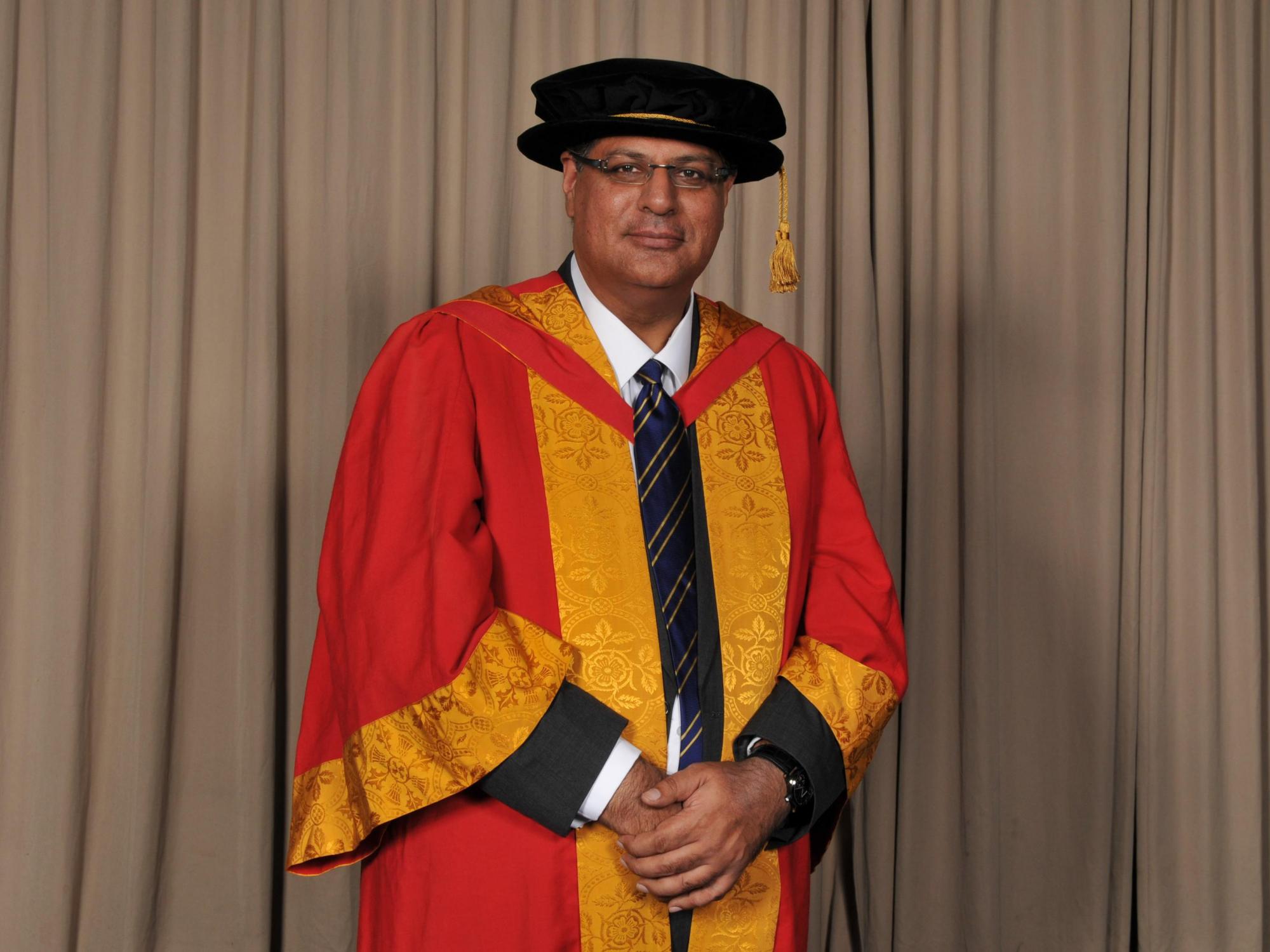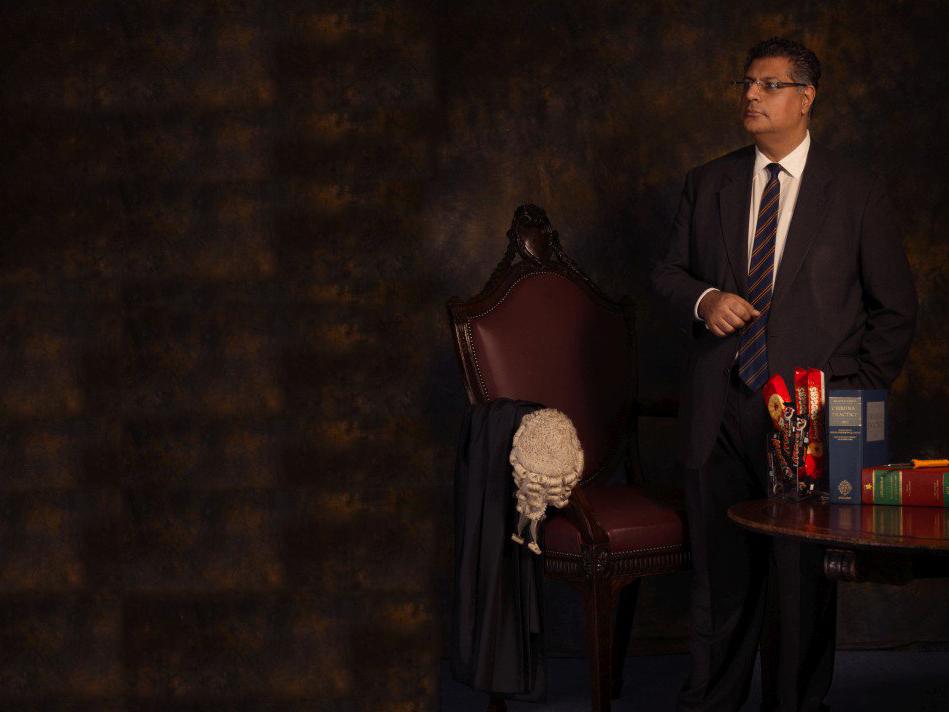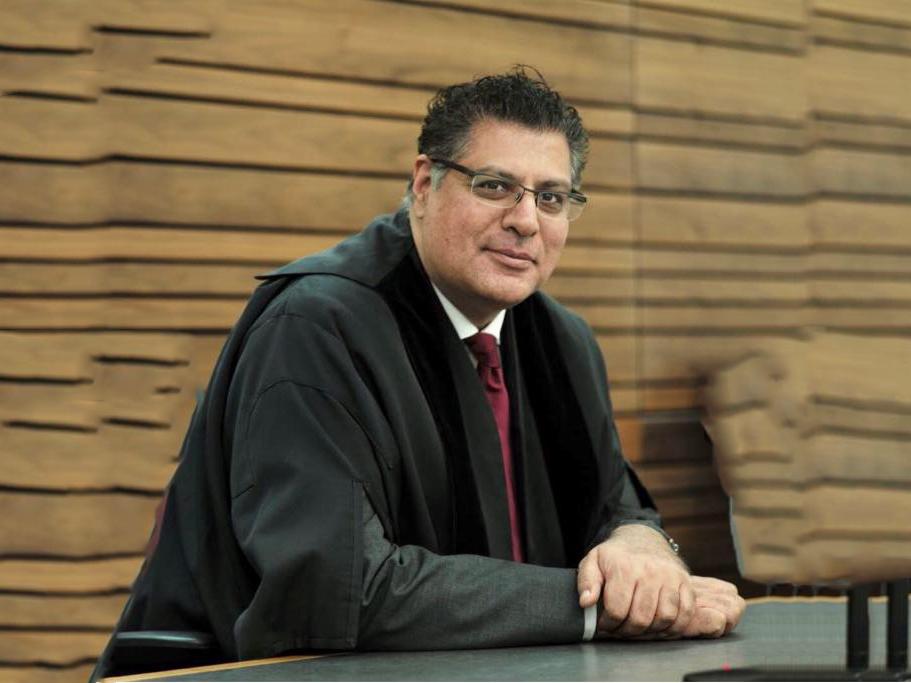
Tan Ikram became a Deputy District Judge in 2003 and a District Judge (magistrates' court) on the South Eastern Circuit in 2009. In 2017 he was appointed Deputy Senior District Judge (Chief Magistrate). He was called to the Bar in 1990 and later practised as a solicitor specialising in fraud, serious and complex crime. He was a Legal Assessor to the Nursing and Midwifery Council Professional Conduct Committee and served as the President of the London Criminal Courts Solicitors' Association in 2007–08.
Judicial appointment. What happened next?
Tan Ikram gives us an update on his career since his appointment as a District Judge in 2009.
“I was appointed as a deputy district judge (magistrates’ courts) in 2003 and to the full time position in 2009. I was selected to sit in crime but have since moved on and sat as a judge in the family court and as specialist judge in extradition, having no experience in either area.
“I have just been appointed as a judge on the British Sovereign Bases on Cyprus, again with no knowledge of that jurisdiction but comfortable in applying my judicial skills to a new environment.
“I have been asked to act as referee and, done properly, it is an arduous task, as it has to be detailed and evidence-based in the same way as an application.
“Competition to judicial office is intense and candidates must be very well prepared. There is just no substitute for the time and care necessary to draft evidence-based examples and practise interview questions. I have recently mentored a crown prosecutor who was successful and I know how many hours she put in. It built her confidence and allowed her to demonstrate the required qualities.
“The JAC has made real progress since it was established. I fully support the JAC’s transparent and objective process for appointment. There are many challenges ahead, but many aren’t within the JAC’s power or remit to change. However, the new system is a vast improvement on what went before.”
Tan Ikram case study. He told us what he enjoys about the role and gave good advice on selecting referees.
“In 2003 when I started sitting part time [as a Deputy District Judge] I was head of department of a medium sized law firm. I spent much of my time managing, reviewing utilisation rates, time recording, dealing with monthly targets and aged debt, you know, the sort of things that partners worry about. But every now and again, I'd take time out and do my other job as a judge. I quickly realised that this was what I wanted to do full time. It tested a different part of my brain but it also assisted the practice by bringing in new skills. When you start making the decisions, it does focus your mind on the things that matter in a courtroom and you learn by seeing cases through the eyes of the judge. I think I became a better advocate and brought back much to the firm.





“There are many positives to sitting on the bench – interesting cases and arguments (some of which I admit to borrowing) – but it also brings its challenges. Balancing priorities was difficult and keeping partners happy was sometimes tricky.
“I was sworn in at the RCJ as a full-time judge in May 2009 and it is the best job I've ever done; in the trenches, very much on the front line.
“It brings with it a lot of responsibility and life has changed. I don't worry about billing targets, see clients seven days a week or roll into a police station at 3am. The work can be demanding – district judges in the Magistrates' Court deal with the longer and more complex cases. Recently, I travelled down from London to Redhill to deal with a long case in the Youth Court. Some of us also deal with family cases and I sit in the Family Court where I handle the usual diet of care proceedings and applications for contact and residence orders.
“The work is varied and it comes with its own pressures as well – a Court One list at Camberwell on a Monday morning can have 60 cases. That's a lot to get through in one day. Many of the defendants will be unrepresented, most of the lawyers will be extremely helpful but some lawyers will arrive without having read their papers. On occasion, I may be the only lawyer in the courtroom as the prosecutor need not be legally qualified. So you've got to know your law and, as importantly, be good at handling people and juggling the volume of work, never forgetting that fairness and justice always comes first.
“Today, the judiciary is appointed on merit alone and competition is fierce. You have to be well prepared. When I applied to the JAC for my full time role there were around 400 of us applying for just 20 or so positions. Shortlisting was by way of a written qualifying test. I knew we were likely to be asked questions about magisterial law and practice – rules of evidence, hearsay, endorsements, all those technical points that you need. So as far as I was concerned the best way to prepare was to get the books out.
“I thought very carefully about my references too. I didn't know any QCs particularly well and I didn't know any judges either. I'll be honest, I come from Slough and I wasn't sure people like me became judges. In the end, I chose a head teacher at the school where I was a school governor, a Crown Prosecutor who I used to regularly spar against and a partner at another firm in town who knew my work well.
“Recently, the JAC sent a form to me, seeking a reference for someone. Would you believe, I didn't even know the applicant? So, do approach your referee first, and tell them you're applying. If it's a member of the judiciary, do remind them of all those difficult points you raised in front of them and how eloquently and politely you disagreed with them on the day. There is nothing wrong in jogging memories as the reference will only be worthwhile if it is backed up by examples.
“And look at the online application form now, don't wait for a competition. Start thinking about the examples you can give to show you meet the necessary qualities and abilities. Ideally, you should have been thinking about this long before the day the JAC announces the competition is open for application. You should have already taken the time to have visited the court or tribunal where you want to apply – or undertaken some relevant judicial shadowing to see how it works.
“My final piece of advice would be to apply for something you have a real passion for and are going to enjoy doing.”
Courtesy: https://www.judicialappointments.gov.uk/case-study/tan-ikram-district-judge-magistrates-court